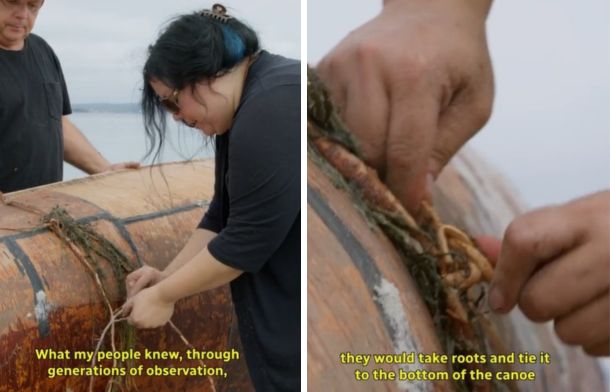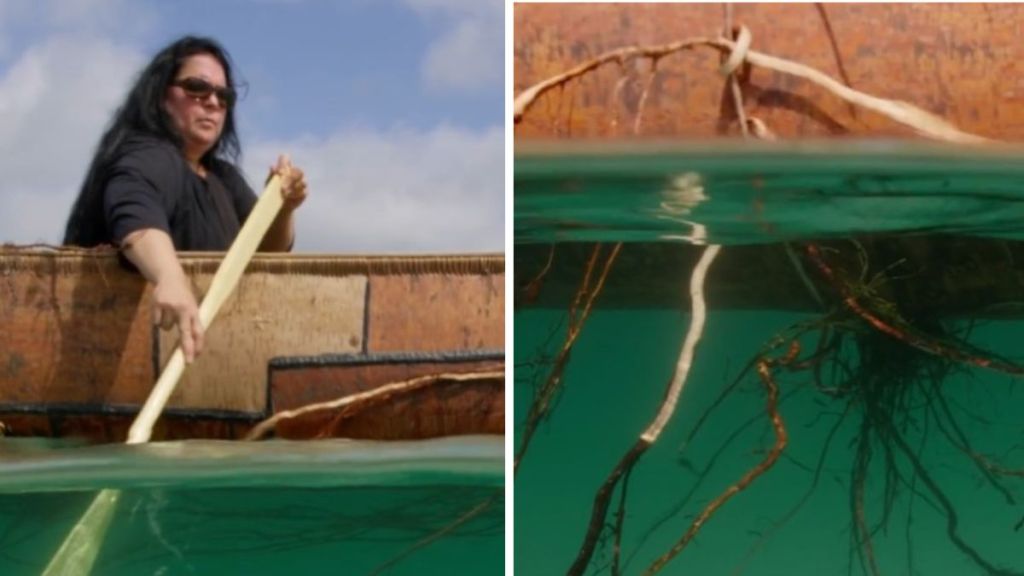Indigenous peoples in the Atlantic region of Canada have a unique way to dissuade sharks from attacking their canoes. From underwater, the long, thin canoes can resemble seals that may be appetizing to a shark. The Mi’kmaq People discovered that if they tie roots from a spruce tree to the underside of their canoes, they act to deter white sharks.
Videos by InspireMore
The simple concept deters the white sharks by causing them to think they are close to the shore. The sharks will turn away from the canoes to avoid beaching and hunt for food elsewhere. The spruce roots are tied to the bottom of the canoe using eelgrass or other things close to the shore. The roots emit an oil that the sharks can taste. Instead of seeing the appetizing-looking bottom of the canoe, the animal’s senses tell them they are too close to the shore.

This and other lore have been passed down through generations of Mi’kmaq. They call themselves L’nu’k, which means “the people.” Mi’kmaq is an alteration of their word “nikmak,” which means “my kin-friends.” Many items still used today originated from the Mi’kmaq People, also known as the First Nations People of Nova Scotia. The Mi’kmaq used snowshoes with differing weaves for different types of snow conditions. The word “toboggan” is from their original oral language.
Mi’kmaw is the singular form that identifies one person, and Mi’kmaq is the plural form identifying a group. This resilient group of just over 70,000 people resides mainly in Nova Scotia and New Brunswick but has spread to some parts of Quebec and Newfoundland in Canada, as well as in the states of Maine and the Boston area of Massachusetts.
Please share if history fascinates you.
You can find the source of this story’s featured image here.
Want to be happier in just 5 minutes a day? Sign up for Morning Smile and join over 455,000+ people who start each day with good news.


